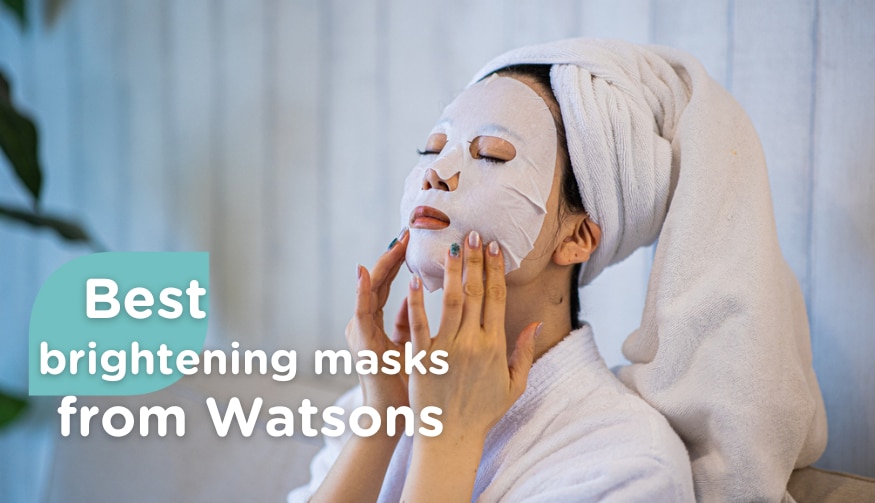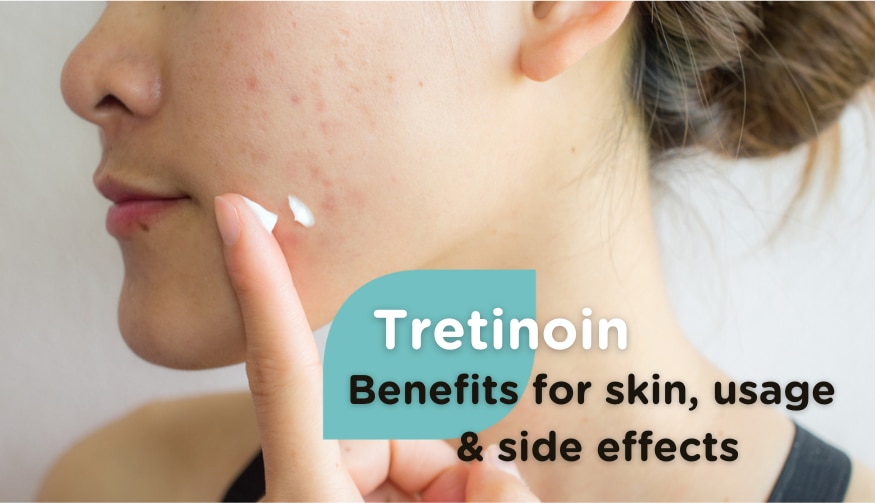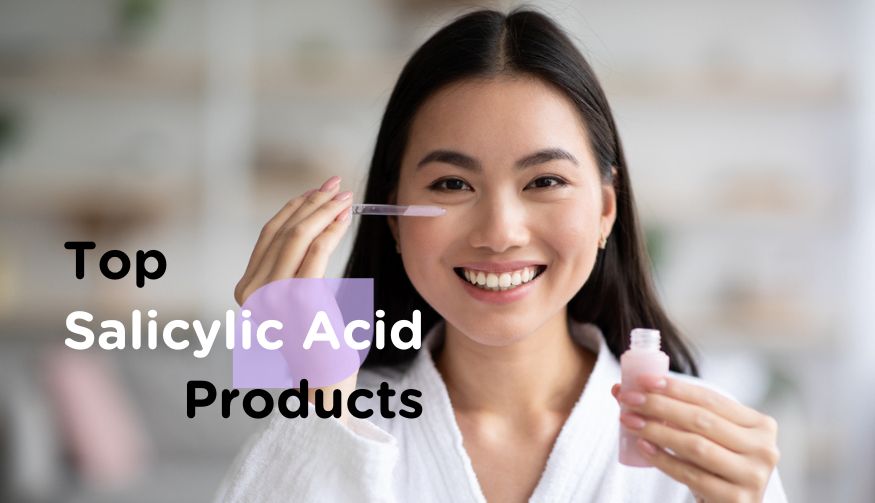It can be very frustrating to fight against acne, which causes skin problems such as pimples, blackheads, whiteheads, cysts, etc. Here are tips on how to get rid of acne for a clear and even skin tone.
What is acne and what are the causes?
Acne is an inflammatory skin condition characterized by red pimples on the skin, especially on the face. It occurs when your hair follicles clogged with oil and dead skin cells. The primary cause is the excess activity of male hormones, like testosterone, that present in both men and women. A higher level of male hormones stimulates the growth of skin cells and the production of sebum. When the pores are plugged with dirt and dead skin cells, it creates a perfect environment for bacteria to grow, causing an inflammation that leads to acne.
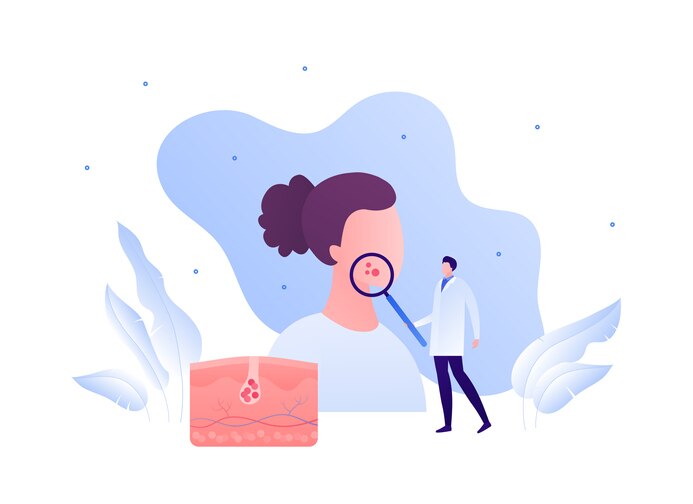
Types of acne:
- Blackhead
- Whitehead
- Pimple
- Papule
- Pustule
- Cyst / Nodule
Treatment and prevention
#1 Consider a salicylic acid cleanser
Cleanse your face two times a day with an acne-fighting cleanser formulated with salicylic acid. Salicylic acid is, in fact, a beta-hydroxy acid that works by dissolving excess oil and gently exfoliating away dead skin cells to keep pores from clogging. Did I mention this powerful acid also helps reduce swelling and redness? If you’re new to salicylic acid, start with once a day only.
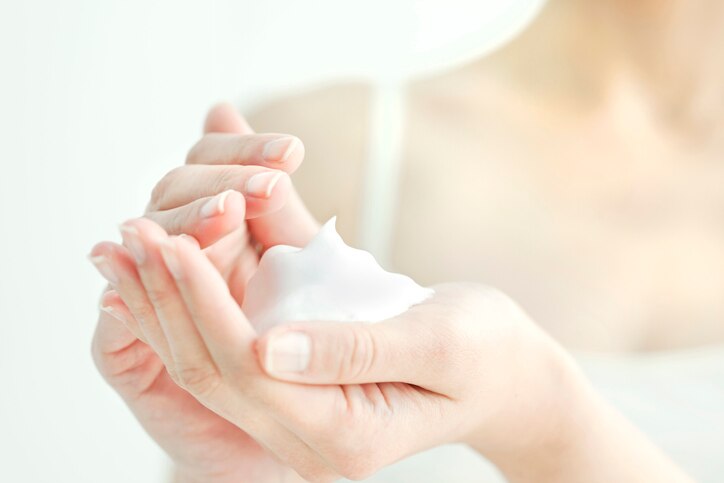
#2 Pick up a spot treatment
Get an over-the-counter spot treatment that can actually blemish stubborn pimples overnight. Look for formulas with the regular blemish-flighting benzoyl peroxide, glycolic acid, or salicylic acid. Benzoyl peroxide kills acne-causing bacteria, while salicylic and glycolic acid removes excess oil, reduce inflammation and dry up the pimples. Just keep in mind they’re not meant to be used on your whole face. You only need to dab a small amount to affected areas before bed and leave it on overnight.
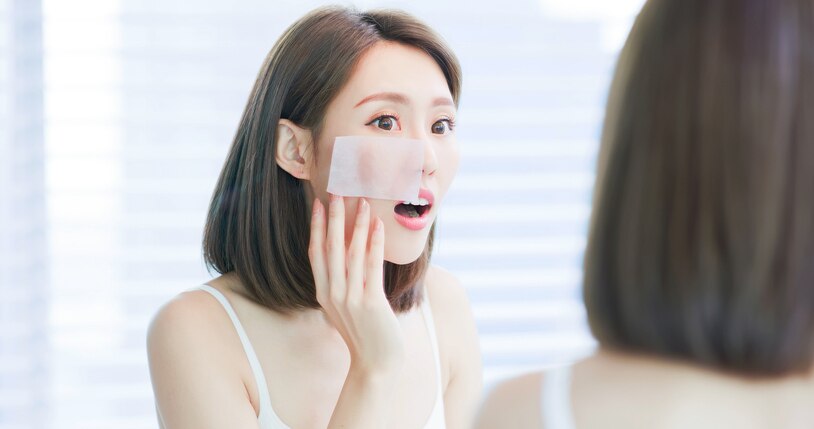
#3 Look for retinoids
Make retinoids part of your skincare routine for clearer skin. Vitamin A derivatives not only increase cell turnover but also help pores be less susceptible to getting clogged and therefore prevent blackheads, whiteheads, and other acne lesions from forming. Side effects of using retinoids include redness, dryness, itching, and stinging. You need to work your way up to consistent use. Aim for 3 times a week to start with.
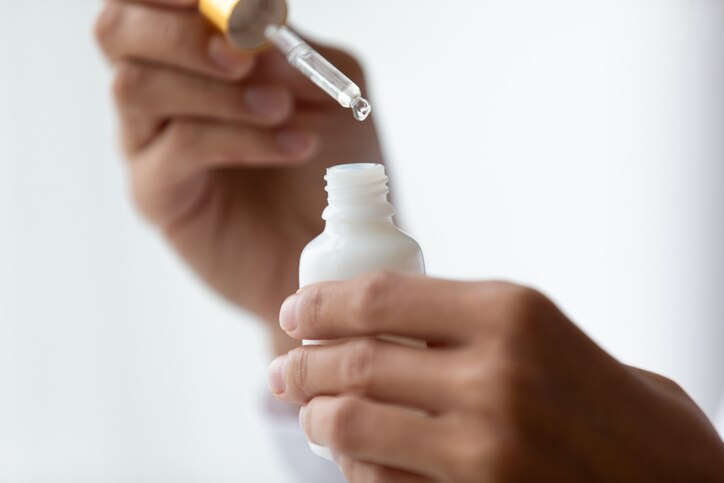
#4 Use an acne-friendly daily moisturizer
Stick with oil-free, noncomedogenic moisturizers if you’re struggling with acne. This ensures the lightweight, non-greasy formula won’t further clog your pores or exacerbate existing breakouts. Apply a thin layer of moisturizer as the last step in your skincare routine for healthier, calmer-looking skin. Be sure you moisturize even if you have acne to keep your skin barrier healthy.
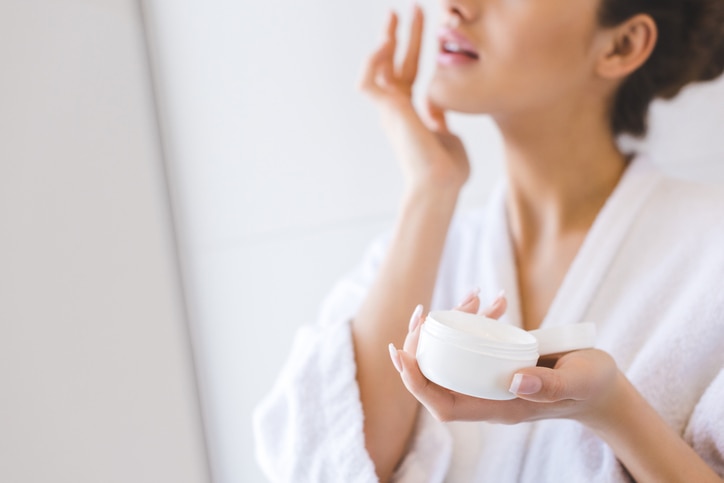
#5 Use makeup that’s friendly to acne-prone skin
Look for makeup products that are lightweight in texture and with “oil-free” or “non-comedogenic” labeling. Ingredients such as salicylic acid, hyaluronic acid, and even sulfur could also help relieve breakouts.
However, it’s never a good idea to pop pimples. Picking will make any pimple take longer to heal, and it can also lead to infection. So, keep your hands off!

Want more tips on taking care of oily skin? Check out here!
Lifestyle changes for clear skin
#1 Avoid foods that aggravate your acne
Foods that contain a high amount of refined sugars increases the risk of developing acne. This is because they can be absorbed quickly and raise blood sugar levels which leads to a rise in insulin levels. Insulin boosts male hormones and contributes to acne development. Refined grain products such as white bread and white rice and dairy products like milk have similar effects on our body too.
#2 Add acne-fighting foods and supplements to your diet
Foods rich in omega-3 fatty acids, such as salmon, walnuts, trout, sardines, are a great help in reducing inflammation. You can also add vitamin C to your diet to reduce acne scars as it boosts your immune system and increases cell turnover rate. Oranges, tomatoes, kiwi, and grapefruits are great sources of vitamin C.
#3 Sleep well and drink more water
High quality sleep will improve the appearance of your skin. Sleep for 7-8 hours so that your skin has time to recover during the night. You should also drink more water to keep your body and skin hydrated, which prevents your skin from getting dry and having dead skin cells clogging your pores. Drinking enough water also helps your body to fight inflammation, which is a major reason for acne development.











